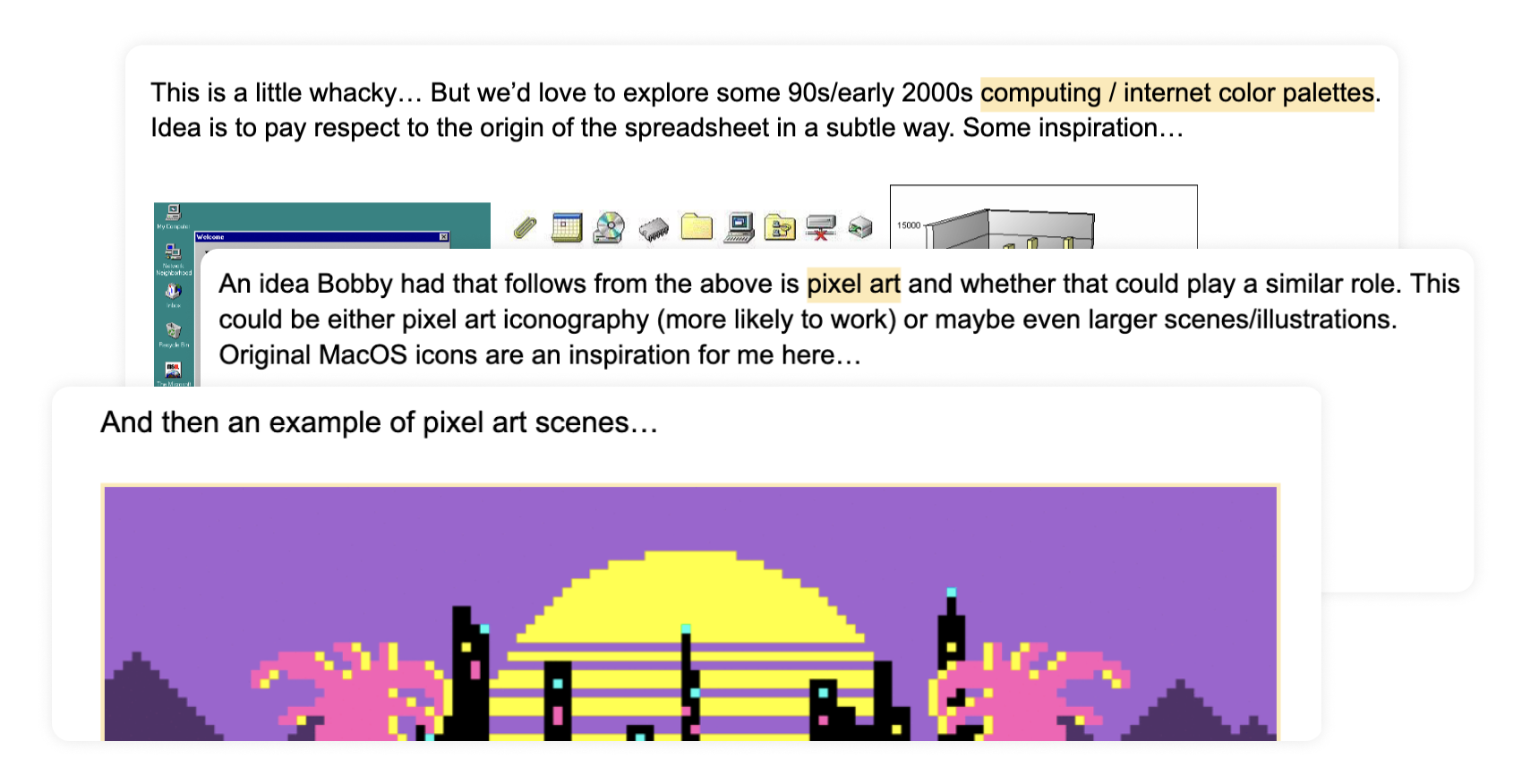A 90s inspiration for our new Equals brand
Ben McRedmond | | 2 min read

One of the striking things about the late 90s, the early 2000s, was how limitless software and the early internet felt. You didn’t really run into limitations of the tools you used. They might have been slow, they might not have been the prettiest. But they were ambitious, thorough, and complete. And the settings. There were so so many settings.
Then the markets got big. Software ate the world and suddenly every industry, every discipline, and every process needed its own software. You no longer needed 100% of computer users to build a big company. We also learned how to more consistently create valuable companies. We learned about cupcakes, minimum viable products, and making something people want. Together these forces shifted us, rationally, towards a different, more constrained type of building. There are, of course, a million dead companies that built more than they needed to. Building more than you need to is a risk. It's time wasted not finding a real problem to solve for people.
But we lost something along the way here. We overcorrected.
Some problems actually do have deeply technical answers, with large surface areas. And so long as you’re rigorous and intellectually honest, that isn’t in conflict with a relentless focus on making something people want. How do we know that? Well… Excel and Word and Powerpoint exist because they didn't get Minimal Viable Product'd to death. Netscape didn't "descope" including a new programming language with Netscape V2. And Google actually went ahead and organized the world’s information. More recently, companies like Figma and Notion have taken on problems with large surface areas, and have had success commensurate with their ambition.
We’ve also forgotten that tiny teams can take on difficult problems. In fact, tiny teams are really the only group that have ever successfully taken on truly difficult work. All the teams above started out with just a handful of people. From a softer perspective, taking on this sort of work – it’s good for the soul. It’s engaging. It makes hiring easier too.
And so that’s why Equals isn’t a plugin. That’s why we’re building an entirely new spreadsheet, with native data connections and versioning. By building the whole thing, we can make data a true first class citizen, rather than just building an “importer”. We aren't locked into the limitations of Excel (not collaborative) or Sheets (not designed for analysis first). We are just scratching the surface, we have only just begun, but we are building the whole thing.
So! When putting together our new brand identity we wanted to allude to those thorough, ambitious tools that came before us. Largely from the 90s. It is a modern take on an old way of doing things. Just like Equals. You'll see that inspiration throughout our choice of color palette, typography, iconography, and with some loose spreadsheet visual cues also. We enjoyed partnering with SuperKeen who took all our fun requests in stride. :)

You can see the above ideas come to life a little bit right here on our blog, but more so on our new homepage. We hope you’ll check out the site and let us know what you think.

By Ben McRedmond
CPO & Co-founder at Equals

